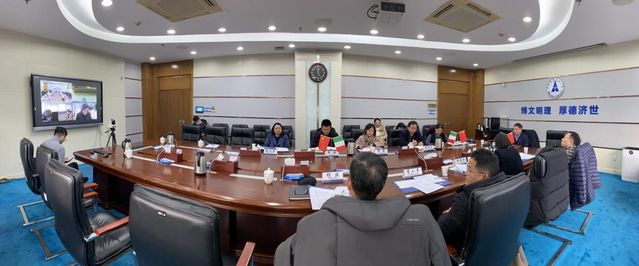News Network (by Lei Lan) In April 2022, the “Sapienza Law and Economics Institute, Zhongnan University of Economics and Law”, which was jointly established by Zhongnan University of Economics and Law (Hereafter referred to as ZUEL) and the Sapienza University of Rome, was officially approved by the Ministry of Education as a sino-foreign joint education institution established without legal person status. The approval of this institution marks a major breakthrough and landmark achievement in ZUEL’s international education.
The Sapienza University of Rome, also known as the University of Rome or Sapienza, was founded in 1303 and is one of the oldest universities in history. The Sapienza University of Rome, with 11 schools, 63 departments, and several high-level research centres, takes a leading role in law, archaeology, physics and astrophysics, anthropology, and studies in cultural heritage, nanotechnology, cell and gene therapy, design and aeronautics. The Law Department of the Sapienza University of Rome ranks first among Italian universities and 46th in the QS World University Rankings by Subject 2022. With prestigious faculty, the university is known as the "cradle of jurists" for cultivating world-renowned jurists and famous statesmen, lawyers, and judges including the current president and prime minister of Italy.

On January 17, 2022, a video conference was held between ZUEL and Sapienza University of Rome, attended by presidents of both sides.
The establishment of Sapienza Law and Economics Institute, ZUEL aims to further cooperate on leading disciplines between the two universities and provide a platform for academic exchanges and sharing of high-quality educational resources so as to promote ZUEL to achieve its strategic goal of “building a “high-level humanities and social science university with distinctive characteristics”, and cultivate highly-qualified graduates with international vision and global governance ability that are urgently needed by the country.
The newly established institute marks another step for ZUEL to go global. A new pattern of discipline development in an innovative, high-quality, and overall way will be built through the improvement in talent training, faculty building, scientific research, social services, and international exchanges and cooperation, which is of great significance to ZUEL’s construction plan of world-class universities and world-class disciplines (‘Double World-Class’ ).

